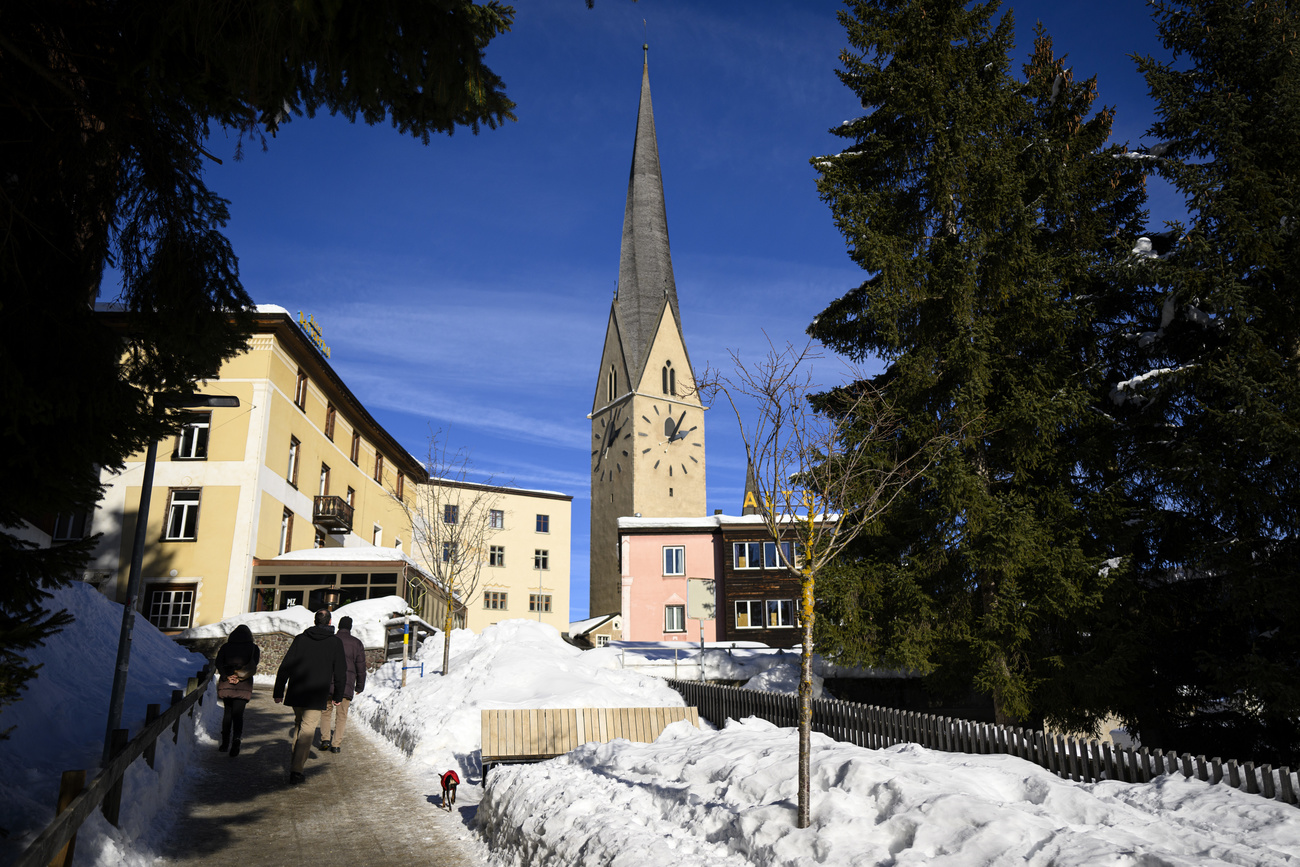
Why Switzerland is losing its religion

Religion in Switzerland is suffering an identity crisis. For the first time, the largest single faith is a blank space.
A religious survey reveals that there are now more people who fail to associate with any specific denomination (34%) than there are Catholics (32%).
In 1970, practically everyone adhered to the twin Christian faiths of Catholicism and the Protestant Evangelical Reformed Church, in roughly equal number. Now, the faithless stand at the top of the charts.
+ Deserted churches: Swiss abandon God
What are the causes of this phenomenon, and can anything be done to reverse the slide?
In Western countries in particular, deep-seated religious belief is constantly challenged by scientific evidence, while pulpit sermons jostle for attention with popular culture and other secular distractions.
Lost in translation
The Federal Statistical Office (FSO) Religion 2022 survey found that younger people in urban areas are the most likely group to turn their backs on organised religion.
“The key messages of Christianity do not change, but there is a constant need to keep adapting their translation to reach people in a changing society,” Urs Winter-Pfändler, scientific project manager at the Swiss Pastoral Sociological Institute (PSI), told SWI swissinfo.ch.
The Catholic Church faces a more serious and direct challenge to its credibility among people in Switzerland.
Following years of denial, more than 1,000 cases of sexual abuse at the Catholic Church, dating back to 1950, were finally uncovered by an independent report last year.
The damaging revelations have hastened an exodus of Catholic worshippers that was already in full flow. In 2022, 34,561 people left the Swiss Catholic Church, according to PSI.
Nearly the same number left the Evangelical Reformed Church that year (30,102). The scale of Catholic leavers has increased in recent months, but the exact numbers are not yet known.
Catholic exodus
“With the extreme peaks in September and October, 2023 will certainly set a new annual record for departures, but we are confident that the trend will normalise again in 2024,” said Urs Brosi, general secretary of the Roman Catholic Central Conference of Switzerland (RKZ), in an emailed statement.
But the Catholic Church will continue to shrink even if the current exodus of outraged members slows down this year.
+ How Church tribunal might tackle abuse
“A reversal of the secularisation trend seems impossible at the moment,” said Brosi. “We are therefore preparing to become smaller and to lose members, finances, staff and church buildings.”
Winning back believers will be a difficult and long-term task, according to Urs Winter-Pfändler.
“The Church can’t just put a poster up in the town square saying: ‘Have faith in us’,” he said. “Credibility can only be restored with a number of small, but concrete, steps that demonstrate that the Church has people’s best interests at heart.”
Other religions remain in the extreme minority in Switzerland and are growing only slowly. The proportion of Muslims grew from 3.6% of the population in 2000 to 5.9% in 2022. In the same period, Judaism grew from 0.7% to 1.3%.
A higher power
This means that most people who leave the Christian Churches end up in the category “no religious affiliation” in the Swiss federal survey. However, while more people are leaving organised religion, for many, religion has not left them.
“Almost a third of people without a religious affiliation consider themselves somewhat or definitely spiritual,” states the FSO. “Religion or spirituality play a somewhat or very important role in certain situations, even for people without religious affiliation, for example in difficult moments in life (28%) or in the event of illness (22%).”
“Around 30% of them do not believe in one or more gods, but in a higher power.”
Worshipping in isolation is a poor substitute for communal prayer and cannot replace organised religion, says Urs Winter-Pfändler.
“It’s not wrong for individuals to practise their own faith outside of organised religions. But at the end of the day, people are social,” he said. “We need the company of others, community and structures to live our lives.”
“The Church offers many services to society, such as hospital visits, education, spiritual guidance, grief counselling and helping refugees and the homeless. It would be exhausting for any individual person to think about all these things at once.”
More
Edited by Reto Gysi von Wartburg/ts)

In compliance with the JTI standards
More: SWI swissinfo.ch certified by the Journalism Trust Initiative



























You can find an overview of ongoing debates with our journalists here . Please join us!
If you want to start a conversation about a topic raised in this article or want to report factual errors, email us at english@swissinfo.ch.